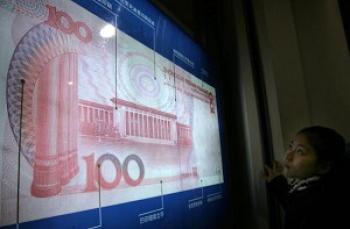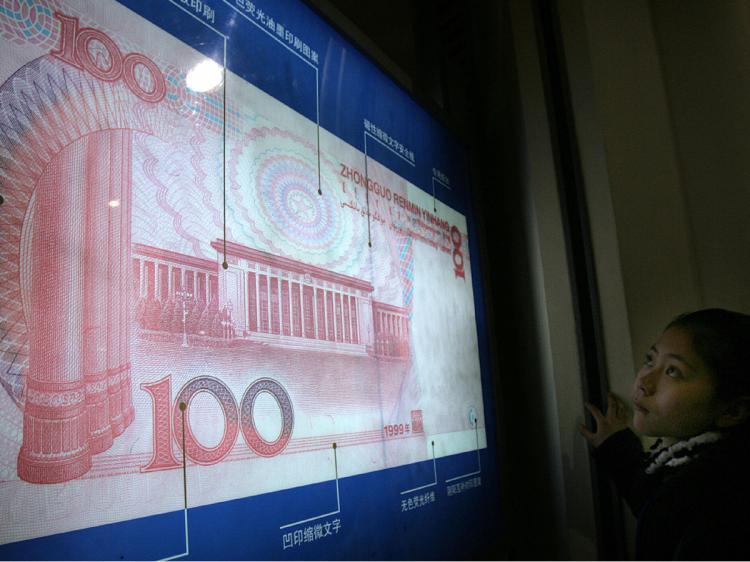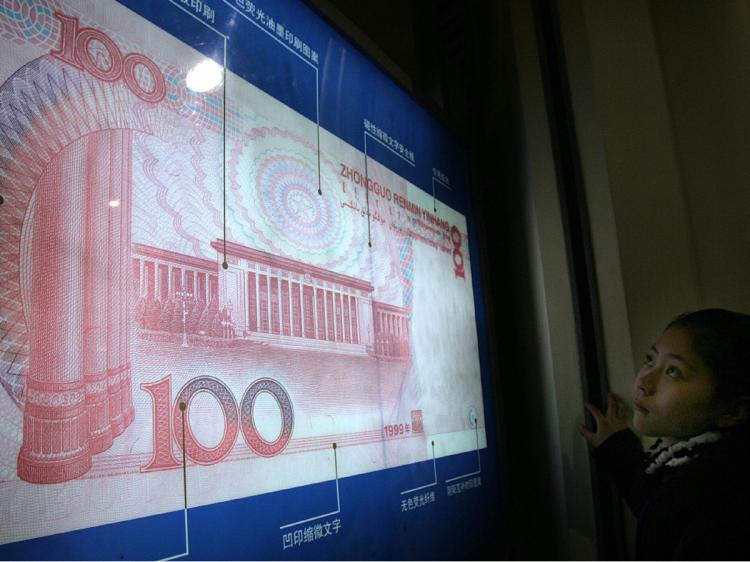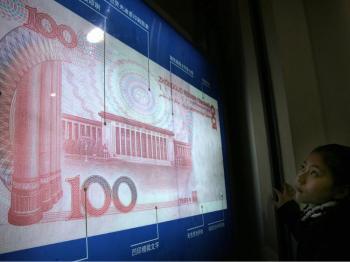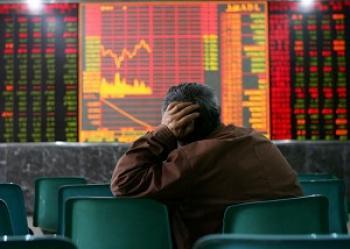Heated debates on the RMB’s future value have been going on for years. Some predict a continuous appreciation in the next few years, arguing that China’s economic growth rate will remain high given its high trade surplus and huge foreign exchange reserves. Appreciation theory supporters include Prof. Ding Zhijie, associate dean of School of Banking and Finance at the University of International Business and Economics, who believes that the RMB is still a hard currency overall speaking. Another advocate Lian Ping, chief economist of the Bank of Communications, said in an interview with China Central television, “The global financial crisis has provided an opportunity for the RMB to become a major player in the future multi-polar currency system.”
However, China’s economy has been slipping downward since July 2008, reflected in the pessimistic dismal trade and industrial growth data. While China has lowered its expectations and shifted its economic priority to “maintaining growth,” chances for further RMB appreciation seem to be slim and depreciation is looming on the horizon. If things continue along this track, an appreciation will be a disaster as the ensuing export decrease will bring about massive bankruptcy and job losses.
Since July 2008, the RMB’s continuous depreciation ended its long unilateral appreciation since China’s July 2005 currency reform. Beijing more than once promised to “increase exchange rate flexibility.” Governor of the People’s Bank of China Zhou Xiaochuan said in a Bank for International Settlements conference in Brazil, “We do not preclude the possibility of promoting exportation and maintaining China’s economic growth by depreciating the RMB.” These gestures have inspired general estimation for significant depreciation and fluctuation.
Researcher Yi Xianrong at the Institute of Finance & Banking,Chinese Academy of Social Sciences believes the earlier appreciation of the RMB did not affect China’s trade surplus and fast growth of foreign exchange reserves. He explained that the subprime mortgage crisis since July has brought about a major capital reflux to the U.S., which in turn led to a significant rise of U.S. dollar and thus a relative devaluation of the RMB to the dollar. Yi said if the dollar keeps rising, the RMB devaluation will inevitably continue.
Mei Xinyu, assistant research fellow of the Chinese Academy of International Trade and Economic Cooperation, said that the RMB will be under devaluation pressure from now through the second and third quarter of 2009. The financial crisis and the market reshuffle will pose certain pressure on the RMB, he said. “Only when investors rebuild their confidence in China’s economic stability will the expectation for the RMB devaluation lower,” he said. “I believe this will not happen till after the third quarter next year.”
Two other factors play a major role here. The first is the huge financial black hole in China’s banking industry. The accurate amount of bad debts may remain a mystery forever, but it cannot be lower than thousands of billions of yuan. This alone would doom the RMB into devaluation.
The second factor is that all major countries such as the U.S., E.U., China and Japan are all bailing out their economy with huge amount of money. Where is the money coming from? Issuing bonds and currency are both major options which, however, will accelerate currency devaluation. The Chinese authorities’ 4 trillion investment plan not only shocked the nation, but also alarmed Western countries of potential RMB devaluation. This sum of investment equals 16.23 percent of China’s 2007 GDP, while the bailout money in U.S., $ 850 billion, equals only 6.2 percent of its GDP. Since 1980 China has been in deficit in all the years except 1985. Then where did the authorities obtain money? Besides, China’s local authorities, following the example of the central government, launched an even larger plan of 180 billion, which may further raise the expectation for the RMB devaluation.
Devaluate or not? This will be the most challenging currency exchange question in 2009. Though consensus has not been generally achieved, it is certain that the 2009 economic trend will be a determining factor for the RMB’s future. If the crisis spreads to other fields, China would have a hard time maintaining its 8 percent growth rate, and the RMB devaluation will be inevitable.
Read original article in Chinese
